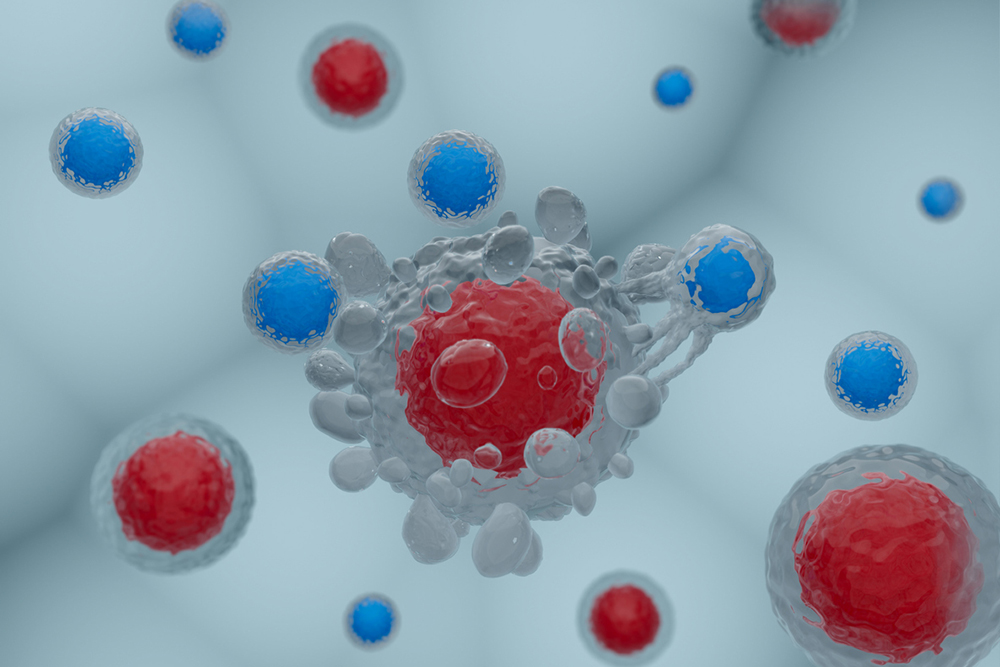
Doctors and other medical experts encourage cancer patients to exercise regularly. Weight training, jogging, or even a daily walk can raise endurance and strengthen the body in preparation for surgery and chemotherapy.
Regular exercise also amplifies the benefits of cancer cell and gene therapy.
Researchers at New York University (NYU) Langone Health’s Perlmutter Cancer Center discovered that aerobic exercise activates specific aspects of the immune system. The report on the NYU Langone website focused on pancreatic cancer, but the cause-and-effect relationship between exercising and the immune system may apply to combatting many other solid tumors.
How exercise makes CD8 T cells stronger and more active
Exercise increases adrenaline levels. This hormone changes the immune system by encouraging the activity of a specific type of immune cell crucial to fighting cancer.
Researchers discovered that exercise helps CD8 T cells survive and even doubled the quantity targeting pancreatic cancer tumors in mice. For example, in one mouse model, exercising 30 minutes five times a week reduced cancer volume by 50%.
CD8 T cells are one type of T cell that can be used to create CAR T cells. Doctors remove T cells from patients and add a new receptor – called a “chimeric antigen receptor”, or CAR – to target cancer cells. The engineered cells are infused back into patients.
If exercise makes CD8 T cells stronger and more active, then it’ll help CD8 CAR T cells similarly against pancreatic cancer.
NYU Langone Health and the University of Texas MD Anderson Cancer Center collaborated on a study involving human pancreatic cancer patients. The focus was on exercising prior to surgery to remove pancreatic tumors. The patients who exercised had more CD8 T cells that expressed a tumor-killing protein.
The exercise-induced change to the immune system helped patients survive longer than if they didn’t exercise before surgery.
Enhancing CD8 T cells with an IL-15 therapy

CD8 T cells respond to a signaling protein called interleukin-15 (IL-15). This protein helps muscles recover after exercise and helps T cells and natural killer (NK) cells grow.
IL-15 also signals to activate T cells and NK cells.
NYU Langone Health researchers observed that a novel therapy called NIZ985 enhances IL-15 signaling. This similarly activates CD8 T cells to look for cancer.
The study revealed that the combination of exercise and the IL-15 therapy made an immune checkpoint inhibitor (blocking the cancerous protein PD-L1) more effective.
Here are a few of the key statistics the researchers uncovered: Survival of mice with pancreatic cancer increased by 100%; and volume of cancer-killing CD8 T cells increased by 175%.
“Our work demonstrates that exercise, and related IL-15 signals, can prime treatment-resistant pancreatic tumors for improved responses to immune-based therapeutics,” said Dafna Bar-Sagi, PhD, study author, senior vice president, vice dean for science, and chief scientific officer at NYU Langone Health. “That even mild exercise can profoundly alter the environment in tumors points to the potential of this approach in treating patients with a devastating disease burden and few options.”
Sign up for ACGT’s email communications list to get the latest news in cancer treatment and research, specifically about cancer cell and gene therapy.
Page sources
- Exercise Amplifies Immune Attack on Pancreatic Cancer. NYU Langone Health. Retrieved from: https://nyulangone.org/news/exercise-amplifies-immune-attack-pancreatic-cancer. Accessed: 06/14/2022.



